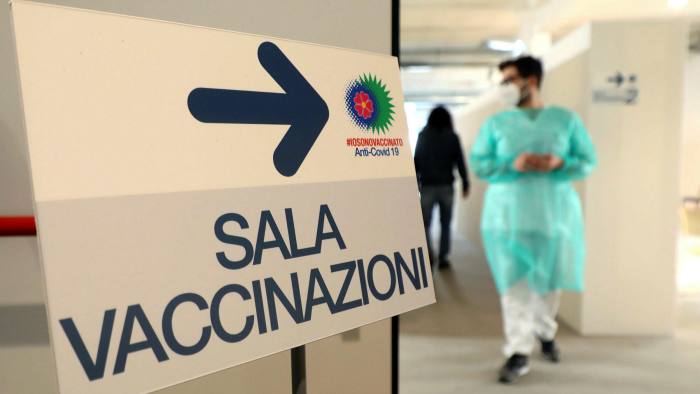Italy makes covid-19 vaccine obligatory for all health workers

Rome: The Italian government has made covid-19 vaccines mandatory for all healthcare workers, including pharmacists, in a move that has sparked controversy in Italy.
The order, part of a decree approved by premier Mario Draghi on 31 March, is designed to protect “as much as possible both medical and paramedical staff and those who are in environments that may be more exposed to the risk of infection,” the government said in a statement.
Critics see the decision as overreach by the government and say it raises questions about the legality of obliging only certain categories of workers to be vaccinated.
The order will affect health workers in both the public and private system, and those who refuse face being “reassigned” or demoted to other roles or, if that is not possible, suspended without pay, reports Italian newspaper La Stampa.
The move is also seen as a bid by the government to clamp down on Italy’s ‘no-vax’ anti-vaccination movement, fuelled by vaccine suspicions and recent cases of covid-19 clusters in hospitals after staff refused the vaccine, reports Reuters.
Significantly, the decree introduces a so-called ‘scudo vaccinale,’ a legal mechanism to “shield” those administering the vaccine, in response to a manslaughter investigation into medics after a man in Sicily died after receiving the shot.
Italy’s coronavirus emergency commissioner General Francesco Paolo Figliuolo recently announced plans to accelerate the country’s vaccination campaign, which has been dogged by delays and shortfalls in vaccines, with the target of administering half a million doses per day by May.
Italian health minister Roberto Speranza also signed a new protocol in recent days allowing pharmacists to administer covid-19 vaccines in pharmacies, in what he termed an “important step forward” in making the vaccination programme “faster and more widespread.”
Italy has approved four covid-19 vaccines: Pfizer-BioNTech, Moderna, AstraZeneca and Johnson & Johnson, with the latter expected to arrive in mid-April.





